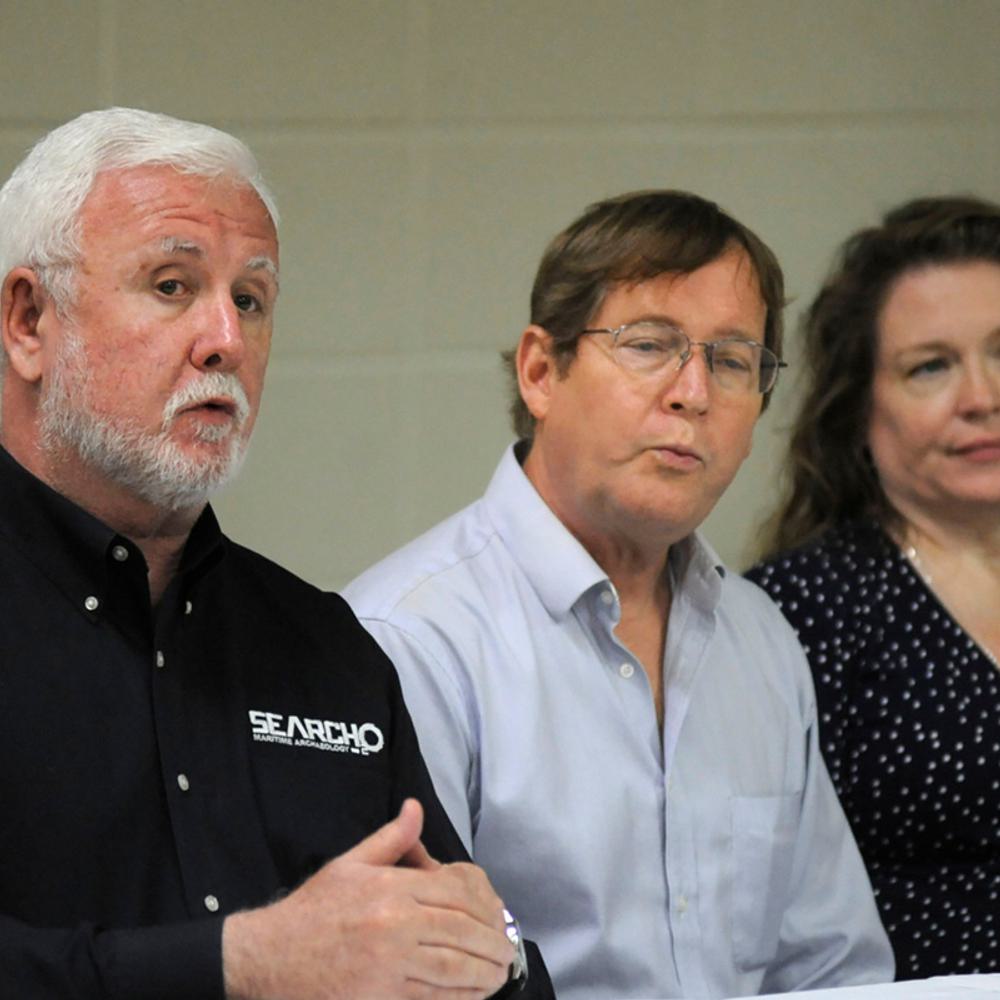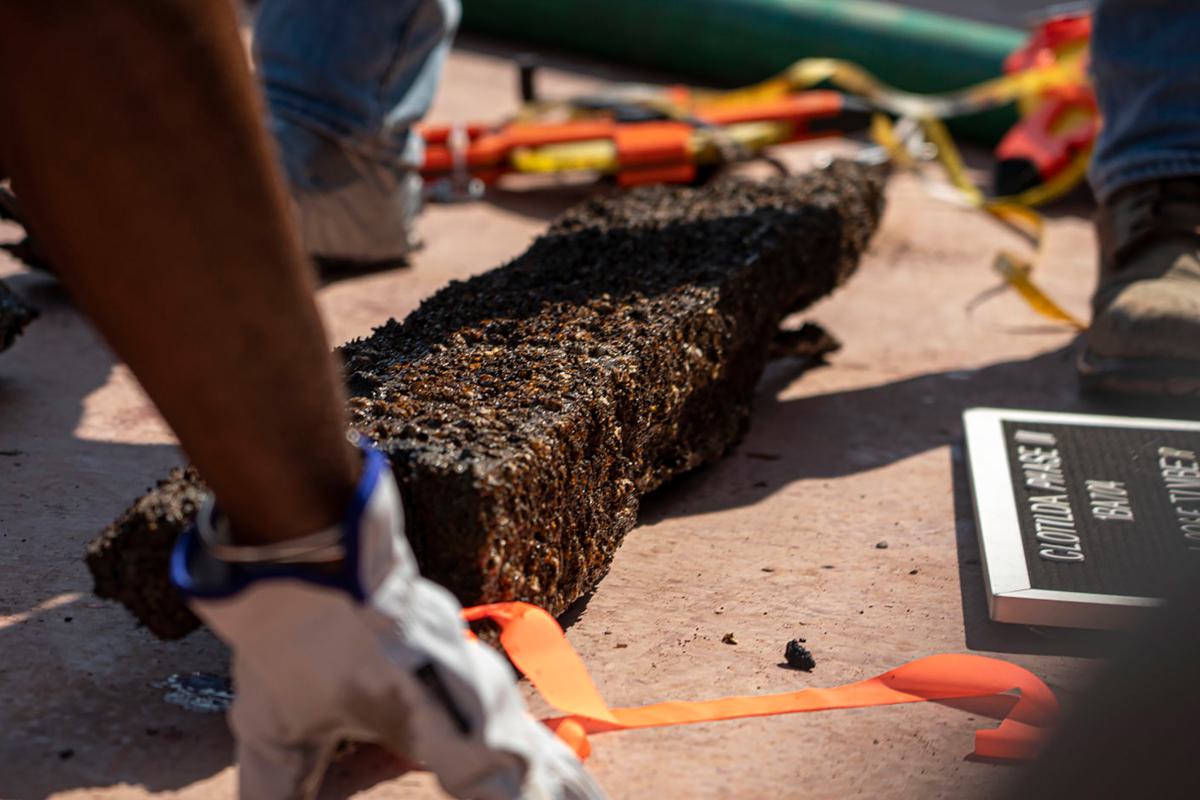A former news reporter who said he found Clotilda, the last known slave ship to bring captives to the United States, is defending that claim after he said some have attempted to write him out of history.
Now, Ben Raines wants the record to reflect the truth, so he is speaking out and telling his story.
Raines has lived in Fairhope for 23 years. He makes documentaries, he's an author, and he's a charter captain. But in 2017, he was a reporter for al.com when he started his search for Clotilda.
"I didn't tell them what I was doing because I figured they would tell me not to do it and that it was ridiculous," Raines told 1819 News. "To be fair, I spent plenty of my work hours doing it, I just didn't let them know."
He had heard the stories of the Clotilda over the years while covering news in and around Africatown. He said at that time, he didn't realize the ship was lost, and he never thought about looking for it. After doing some research, he decided to begin the physical search for Clotilda in 2018.
Raines worked with a team of archeologists, and he said he took them to the site to confirm his find.
The ship was located along 12 Mile Island, where at least a dozen shipwrecks lie. Before the discovery of Clotilda, Raines said he was embarrassed after thinking he had discovered the ship, but after further investigation, it was determined that the ship was not Clotilda.
'I learned a lot in the process of finding the new ship," he said. "So, when we were looking for the second ship, I worked with the University of Southern Mississippi, using some very high-tech equipment."
Raines said after finding the wrong ship, he realized the impact finding the right ship would have on the surrounding community, and descendants of the slaves brought to America on Clotilda.
"This is an incredibly important artifact," said Raines. "It's an internationally-significant artifact that sort of encapsulates the entire tale of slavery in a way that no other historical object can. But also the stories of the people on that ship, the ancestors who arrived on that ship. Most of the descendants don't know anything, but if they're lucky they know the name of the plantation that they worked on and they don't know anything about their life in Africa … The Clotilda people told those stories and we have all that stuff on the historical record. So, that makes the Clotilda story very important to the world."
He said he finally found the actual ship on April 9, 2018. It took a year for experts to come in and confirm the ship was, in fact, the slave ship Clotilda.
National Geographic's James Delgado has spoken publicly about finding the ship and appeared in a documentary about the discovery.

Raines said National Geographic and the Alabama Historical Commission have attempted to steal credit for finding the ship.
"I knew the very first day that they broke the story because I wasn't involved in any way," Raines said. "I wasn't in the press release the state put out. I wasn't mentioned."
There was no mention of Raines in the original story the National Geographic put out on the discovery either, Raines claimed.
"It was clear they had intentionally written me out," Raines said. "Then I learned from fellow reporters at the New York Times that the state was actively lying to them, telling them I had nothing to do with it. So, I knew very quickly that they were trying to screw me and they were trying to undercut me and they were lying about me."
Raines believes the parties involved thought they could avoid mentioning him because he quit his job at al.com and no longer had that platform. However, he said after many discussions with both National Geographic and the Alabama Historical Commission, Delgado told the truth, and National Geographic corrected its story.
"I think they thought I would just go away. It is kind of like they didn't know me very well and they underestimated me," he added. "But when the truth is on your side, it's a lot easier to deal with people who are lying."
Raines was going to keep his story to himself until he was faced with another challenge. The Africatown Heritage House Museum recently opened and has an exhibit celebrating Clotilda. Raines noticed there was no mention of him in the museum. He said he later learned that a new narrative by Delgado was the reason for that.
"It was specifically because the Historical Commission and Jim Delgado, this archeologist, convinced the director of the Historical Museum, who curated the Heritage House Museum, that I didn't deserve to be in the museum because the ship location was so well known [that it couldn't be found], I knew they were lying about history and they were lying about it in order to make themselves the heroes," Raines explained.
On FM Talk 1065, Raines told host Sean Sullivan his story. During the show, he broke the news that the museum director had agreed to add his name to the museum. Sullivan told 1819 News he has known Raines for years and saw firsthand the work he put into the discovery of Clotilda.
"There will be people wanting to say he's trying to get attention but I can tell you this," Sullivan told 1819 News. "If nobody was given credit for the find because it really does need to focus on the descendants, Ben would have been cool with that. But when somebody who didn't find it and didn't do the work, that's where this came up."
Raines said he was pleased the truth was out.
"The take-home here is how petty the state has been throughout this," he said. "It reflects badly on them. They've been caught lying to the public about many aspects of the Clotilda and that's a big deal when public officials lie. They have broken the public's trust."
The Alabama Historical Commission did mention Raines in a press release. The release said a survey was done that led to the discovery of Clotilda but also said Raines pinpointed the area first.
"Before this survey, Raines and a team of researchers from the University of Southern Mississippi (USM) had conducted a search of their own that also pointed to the same target," the press release said.
The same press release quoted Delgado as saying there is not one person responsible for finding Clotilda, and instead, there is a group of people who worked together to find the ship, and Raines is in that group.
The Alabama Historical Commission told 1819 News its main goal in the search for Clotilda was to identify the vessel and confirm its identity. In a statement responding to the allegations, the Commission said, "After the initial identification of the Twelve Mile Island wreck, the Alabama Historical Commission continued the investigation by surveying that segment of the river using remote sensing technology. The team located 12 shipwrecks. All shipwrecks were systematically investigated. One stood out and after much investigation and scientific research, it was identified as Clotilda."
National Geographic has not responded to a media request by 1819 News.
At the end of his journey, Raines said he hopes his story is one that will inspire young people.
"You can go do something if you just go try," Raines said. "And it's all about trying. If you strike out at first, go back and try again."
To connect with the author of this story or to comment, email erica.thomas@1819news.com.
Don't miss out! Subscribe to our newsletter and get our top stories every weekday morning.










